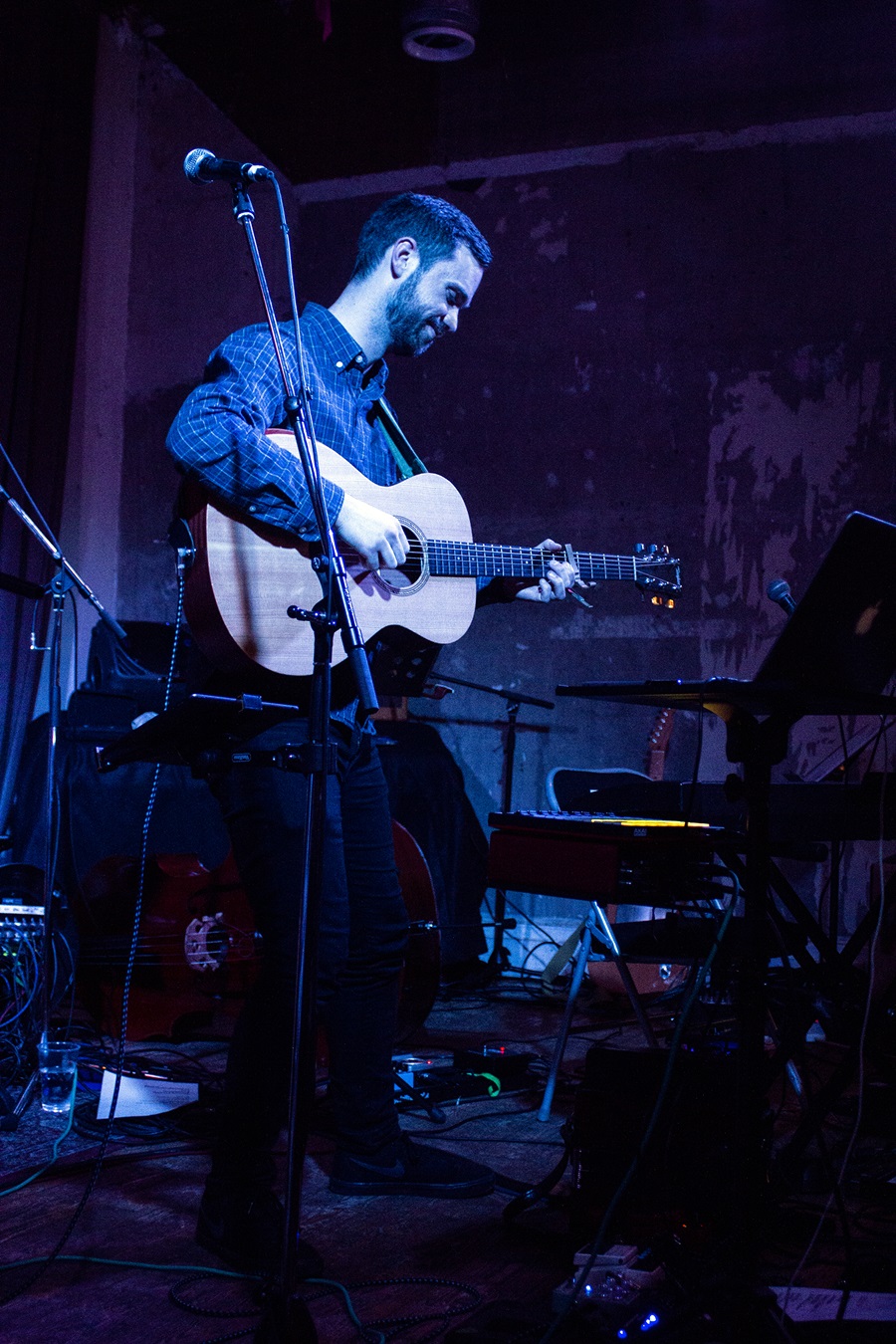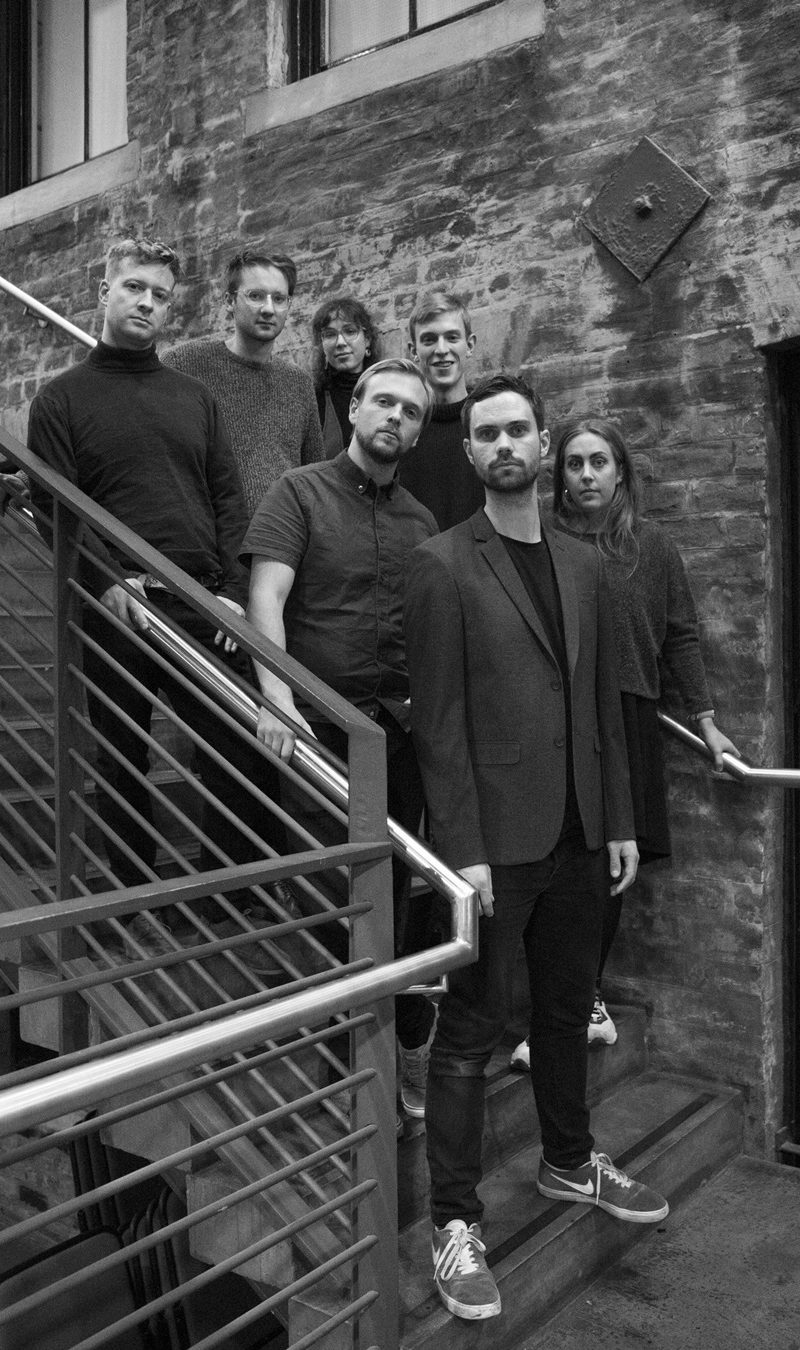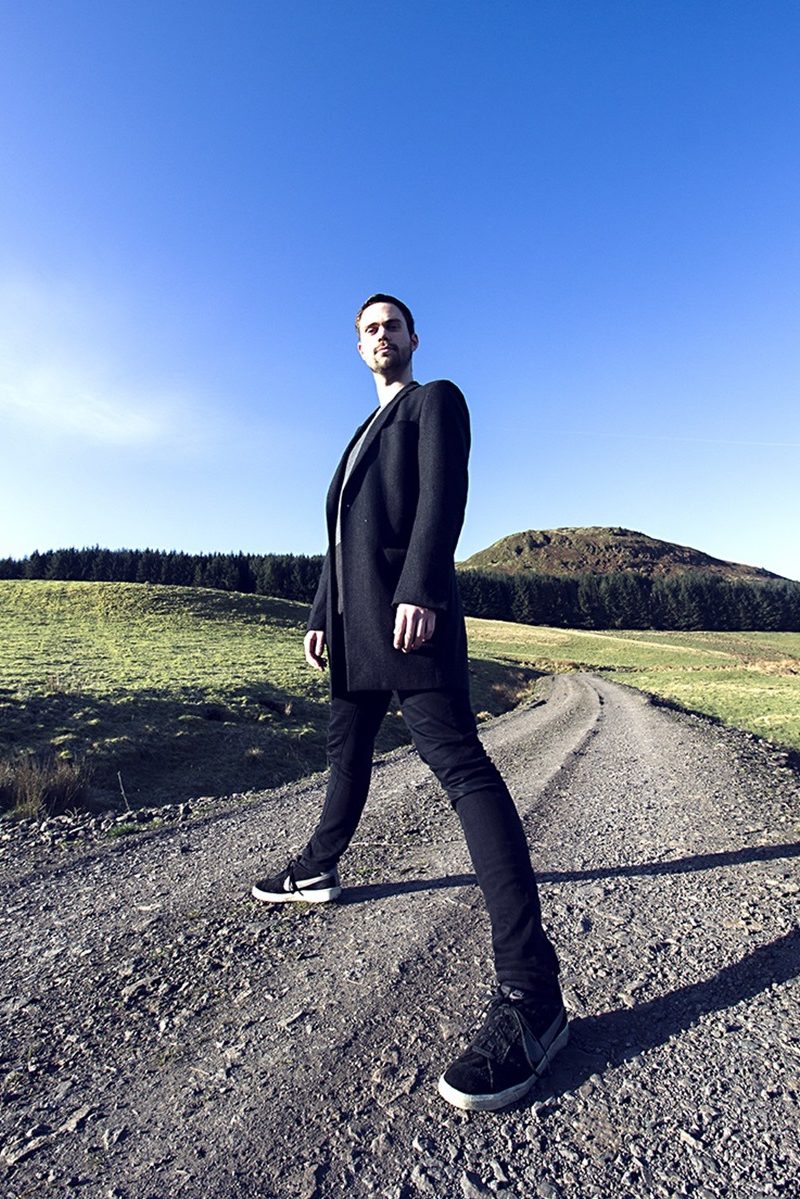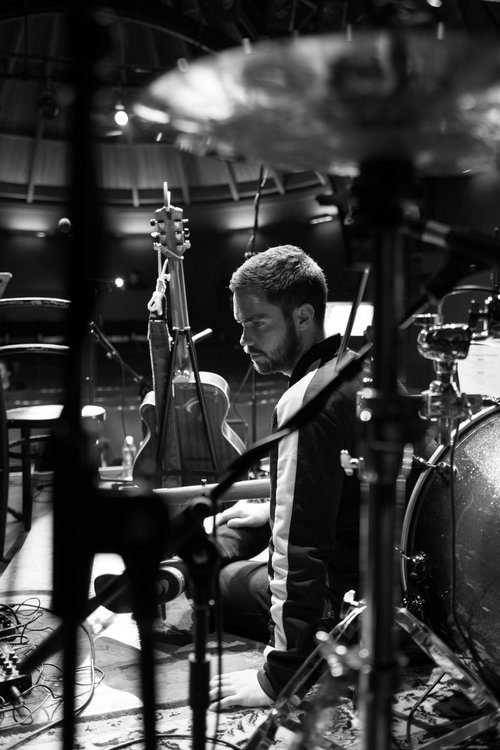In each of our Songwriter Interviews & Features, there is something to learn from all of those songwriters experiences, their processes, methods etc. That’s the beauty of music, there is always something to learn. Glean from them what you can and always try to develop your art form. it’s a life time’s work.
What makes this interview with Zac Scott pertinent and relevant, is that he is a Songwriting Tutor, at the “Academy of Music and Sound Glasgow & Edinburgh”. Zac trained at Lincoln Center Education, New York and also graduated from BA (Hons) Contemporary Performance Practice at the “Royal Conservatoire of Scotland”. He also devotes time to working with Paragon Music, assisting with their music and dance programs, in particular, helping young people with musical aspirations. Given that Zac champions others in their musical pursuit and aspirations and strives to help them attain, we thought it only right to showcase his work, which incidentally, is simply stunning.
Zac elucidates on his background, his teaching and his own musical output, with his forthcoming debut album “For The Love Of” being released soon…
Q: How did you first become involved in music – was it a calling ?
“I first became involved in music in my early years. I come from a very musical family, so instruments, songs and music has pretty much always been around me. My brother and I eventually formalised this ethos by putting on Meat Loaf, Spice Girls and Queen tribute concerts for my parents every night playing through the classics on a wicker stool. Here’s some proof of those times: >>> (pic below)
Q: Would you say you’re a musician first or a creative/songwriter ?
“I would say I’m a songwriter first – it is much closer to how I understand my practice to be. To me, the idea of a musician draws up some connotations to being classically trained and able to sight read – I am not skilled in either of those things, so, “songwriter” fits me better – I am skilled at writing and at putting songs together.
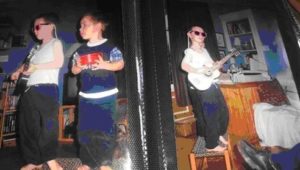
The word creative definitely hangs around a lot with me, metaphorically speaking – it encourages me to keep going and keep making and trusting what I’m doing. I often think that I have to literally be creative when songwriting, because of my lack of classically trained technical musicianship/theory. So, I therefore have had to work on how put a song together that can tell my version of events, which I think I’ll always be figuring out. I am also profusely OCD about anything I am working on and get addicted to the making process, so, being creative also helps me to embrace something random when I’m really struggling with a song idea – it is also a chance for me to be dangerous!”
Q: What music inspired you as you progressed and developed early on and also now – who are you inspired by ?
“My Dad loaned out David Gray’s iconic album “White Ladder” from the Thornhill Library in Dumfries and Galloway when we lived in a small village next to it called Penpont in 2000. He proceeded to learn as much he could about the artist and whenever he had the album on in the car, would give us all a micro-lecture about Gray’s rise and the amount of knockbacks he had before this album and how he had managed to keep himself going despite the hardships and difficulties of being an artist. I always get so much from that album and listen to it often. That prospect of graft appealed to me and remains with me today in terms of a making process. I think you can also hear it in David Gray’s songs in the album – he gives a shit about what he is saying. Songs like “This Year’s Love”, “Sail Away”, “Silver Lining” – all absolutely amazing songs that are so truthful and painfully honest sometimes. I was also really into Meat Loaf, Bruce Springsteen, Eva Cassidy, Coldplay, Travis, Damien Rice during school and high school.”
Q: Are there any genres you are drawn to, or do you listen to/appreciate music right across the board ?
“I listen to anything. (I hope that’s not a cop out…!) I am curious and keen to get behind the ideas in any song, so I am happy to have a shot at it all. Currently, I am drawn to minimalism, to ultra-pop, to hip-hop, to Metallica, to prog-rock. I like thinking about how I might borrow ideas from what I am hearing before then bringing them into the singer/songwriter realm.”
Q: What’s your primary instrument and what others do you play ?
“Piano is my primary instrument just now – it used to be acoustic guitar but I’m writing a lot more from the piano nowadays. I play lots of instruments to varying degrees of success, but generally, I can play guitar, piano, bass, drums and I sing.”
Q: Do you self record/produce (with a DAW/Home Studio) ?
“I do self-produce and record! I have a small set up in a cupboard in my flat where I make the demos using Logic Pro X, a midi keyboard, audio interface and a Rode NT1A. You can really do a lot with that set up by dedicating a lot of time to learning how to get the best out of a DAW like Logic.”
“Million” was chosen as Single of the Week on BBC Radio Scotland in January – this is the “Living Room Session”
Zac’s single “Fox”, from his upcoming debut album. Absolutely gorgeous song, reminds me of Rufus Wainwright and The Fleet Foxes.
Q: How did you prepare for recording the new album – ie (did you draft up the arrangement etc in a DAW/demo the songs first ?)
“It was an odd process, really unexpected. I happened to meet a very talented producer called Thomas Brumby who was just starting out as a practitioner with inclusive music and dance organisation Paragon Music who I do a lot of freelance work with. I showed him some of my music with Cameron Black, who happened to be in the Paragon office at the time and we hit it off from there. Thomas is incredibly generous, inquisitive and genuinely interested in what I had to say. It was the first time I had felt that level of intensity towards my music, which I had been craving. Several coffees later, we decided to work together putting three songs together in his southside studio underneath Lagom coffee shop. It was a brilliant process – we initially intended on creating an EP of three singles, then an album, then a longer EP, then an album!!
It was an exceptionally collaborative venture and it had to be for it to work. I made demo versions of the tracks, brought them to the studio, built the tracks one layer at a time with one instrumentalist at a time and then mixed it over winter time and mastered it last April. It has been in hiding ever since as I shifted my attention to playing live with the full band, before deciding on the right time for the album to be launched.”
Q: What was the motivation for the album?
“The album was motivated by a sound I started to become interested in whilst spending time in Iceland. The shrill, icy wind really inspired me as did the waves other natural sounds that were appearing, creating an “ether” which I wanted to translate in my own musical way. We worked hard in the studio to find the earthy sound I was after before eventually landing on it and finding cool ways to embed it within every song – it was a real team effort and meant playing all of the instruments in lots of unconventional ways. I would offer instructions to whoever’s turn it was to share their interpretation of what this “wind” and “ether” might sound like to them before capturing several layers of it and then editing it from there, injecting it throughout the album.
Lyrically, I was entering a relationship with a new partner and with new projects and a new home – things were changing and moving pretty fast, so I tried to document that as best I could. There are songs on the album about jealousy, love, uncertainty and self-doubt. I like to offer very little in terms of the “meaning” because I like my songs to mean whatever they mean to you. They’re not one size fits all.”
Q: Did you face any issues whilst recording ?
“We didn’t really face many issues in the recording process, we all were in it together and kept it fun and professional – mostly, any issues were my own crippling self-doubt, which is probably why it has taken so long to get the record out into the world… Money was also a factor – I was working a lot of hours teaching and facilitating workshops to afford to pay for the project properly to make sure everyone was paid for their part properly. This meant time creatively sometimes was short – in fact, we only really managed to put the album together over a mammoth series of three hour sessions over the course of the 18 months.”
Q: Which songs have inspired you as a writer and what do you think you took from them which you can hear in your own work ?
“So many songs over the years have inspired my writing. From Eva Cassidy, to Chris Rea, to Springsteen, to Bowie even. Although, at the moment I would say I am inspired by these Indie/Pop/Acoustic artists:
James Blake: His whole Assume Form album is a masterpiece – harmonically speaking, there are so many delicious chord combinations and shapes up for grabs. He sings “less is more” a few times too, which is always a winner for me.
Olafur Arnalds: “Undir” – I have definitely been inspired by the patient, mega lush build up in this song before it opens out into a wider spacious arrangement. I love the way Olafur Arnalds and his players rely on the physical, mechanical sounds of the stringed instruments to achieve the desired aesthetic – it always moves me!
David Gray: “Mallory” – David Gray’s latest album “Gold in a Brass Age” is so brilliant. It has pushed his arguably “straight” acoustic productions in previous albums to so many new places – it is littered with tinkling, curious sounds sparkling throughout. There’s a live version of his song CBS Saturday Sessions version of Mallory on YouTube which is just incredible – his stagecraft and lyrical sincerity in this song is astonishing. The way he builds an icy atmosphere with the sustained, frozen guitar chord pedal throughout is also just brilliant. He is getting better and better as he ages.
Here’s the link >>> CLICK HERE <<< ONR.: “Jericho” – Robert is such a brilliant songwriter and I have always admired his work. His single “Jericho” has such a tremendous build throughout the main body of the song and then an explosive B section which lifts it into the sky! The explosion is something I crave for in songs – it’s like a reward for the attention and care you’ve given by listening to it. I definitely am trying to include this in my writing at present. Be Charlotte: “Do Not Disturb” – This song is a exquisite less-is-more pop song that is so brilliantly produced. I love her voice and she too possesses a captivating stage presence. The song also reminds me of how important the melody is in a pop context – you really are relying on it to carry the emotion and the message. You can tell a lot of care has gone into making this melody come into being, subconsciously and consciously! Q: Do you also compose instrumental works ? “Yes I do. I have composed a lot of instrumental works for dance and theatre as well as for my own projects. It’s a different challenge altogether but extremely fun. The most memorable project was with the extremely brilliant Caroline Bowditch and Laura Hook who co-created a show called “Snigel and Friends” which was about a snail looking for bubbles and caring for its young babies. I made all of the music for it and performed as a guitar playing Cicada! It was targeted for 0-1 year olds and I was on tour with it for a couple of years. The music was acoustic and gentle for this show, which was in stark contrast to the more electronic, house style music I composed for Junction 25’s brilliant piece “1210KM” that was premiered at Glasgow’s Tramway in 2018.” Caroline Bowditch: http://www.carolinebowditch.com/ Junction 25: https://www.glassperformance.co.uk/junction-25/ Q: How do you first start to write, to bring the song into being ? lyrics first, music first, a riff, a chord progression – does it depend on circumstances, mood etc different for each song ? “Chords sometimes, lyrics sometimes, melody other times. It depends on the context, mood and moment I guess. I have to have a feeling or an inkling to follow and then have a chat with it and slowly figure it out. Then the song comes and I have to work hard to catch it before I get distracted by something else. Mega! At the moment, I am really inspired to create chord combinations that artists like James Blake uses by holding a triad still on the right hand and moving the bass triad to something else and seeing what happens. Most of my ideas come from me experimenting – framing it in this way takes the pressure off and allows me to stay curious.” Q: What’s been the highlight of your music career thus far ? “Building a team of brilliant people to collaborate with, converse with, hang out with, record music with and perform with. That’s it. Everything else on top of that is a bonus. Music is a sharing – I’m not interested in the ego-centrism that is arguably rife within artists or performers a decade below me. I think that distracts from the craft and the patience required for something real to happen and for you to try and make sense of that through song. I see a lot of time spent on shallow self-obsession, which I believe is wasted, when one could instead invest an ounce of generosity towards the outside, the eco-centric perspective, others and their processes in order to go deeper to construct a more humble presence and a more honest, real, dangerous song.” Q: What’s planned for 2020 ? “I have a new single digitally coming out on March 20th called “Frostbitten” accompanied by a video break down of Thomas and I speaking about the track in the studio! I am going to release my first album called “For The Love Of…” – a result of a 18-month creative process in collaboration with the following artists: Joe Standley – Double Bass (live) Stuart Macpherson – Double Bass (studio) Grace Dale – Piano/Backing Vocals (studio) Thomas Brumby – Piano/Backing Vocals Sarah McWhinney – Cello Gudrun Soley Sigurdardottir – Violin/Backing Vocals Cameron Black – Drums/Percussion Kenny Cormack – Guitars Layla Rose Cowan – Visuals (Album Artwork) Sam Finch – Photography The album is a distinctive collection of songs inspired by the land – and sound – scapes of Scotland and Iceland. It comprises of 12 memorable and powerful pop songs that blend acoustic piano, intimate and layered vocals, cello, violin, drums and electric guitars, to create an ethereal and evocative sound. I’ve had some good feedback already” “That’s rather lovely!” (Janice Forsyth on single Million, BBC Radio Scotland) “A beautiful song.” (Jim Gellatly on single Fox, Amazing Radio) “…a sound which successfully reflects the vastness of Scotland and Iceland’s breath-taking wilderness.” (Spotlight UK) At the moment, my 2020 plans are up in the air due to the Covid-19 Virus. I had planned for an album launch show at Saint Luke’s on April 30th, but this has now had to be postponed until further notice. I am sure this will be re-scheduled and I will ensure to keep everyone up to date via social media (@zacscottmusic across the board!).” Q: As a Songwriting Tutor and Teaching Artist, what advice would you give to Songwriters (performing or otherwise) out there trying to improve on their songwriting and also how they might improve upon getting noticed/airplay etc ? “Take your time, there is no rush! “I am very fortunate to run Singer/Songwriter sessions in both Scottish centres at the Academy of Music and Sound. I have worked around a syllabus that the legendary Donna Maciocia devised, embedding yoga, meditation, singing technique and songwriting tasks within the sessions. I merely ask my students to show up. That’s the only rule – come along and be as you are and the songs will happen. I then mostly give way to creativity more so than technique (which is embedded within the sessions). Some examples include taking students out of the centre to different spaces or bringing in Jenga to unpick and re-order songs. My advice to anyone who is trying to improve their writing or performance practice is to take time to get to know yourself and how you observe yourself being in different contexts, before you share yourself with the world. Often that’s the step that is missed – the “oh I have to send this in, quick success, mega rush” mentality is a cheap thrill. I think songwriting and its performance is such a personal process that can reveal so much about how you act and react to all kinds of things. I think the more you can learn about yourself the better, and it should complement practicing your instrument and your writing. I would then focus on building a team around you as a songwriter. This takes patience, generosity and time to get folk on board who are going to be able to challenge you and encourage you. This could be band mates, it could be a photographer, etc. Surround yourself with creative people who can inspire you to get the most out of your practice.” Q: What’s the best advice you would give to writers ? “Go out into the world, unplanned, speak to people, be with the moment and the songs will happen. Practice yoga and meditate daily – create a self-care practice to compliment your practice. Be playful, enjoy the results of improvising. Email less, meet more. Open mics are brilliant – practice ideas as much as you can in these contexts. Collaborate > Compete.
Generosity > Self Obsession.
Back yourself – you can do it. There’s no “right” way.
Eat greener, rest well, go outside for longer than normal, phone your Dad or Mum or family often for the small talk because sometimes it’s the best!
Be truthful, be honest, don’t hide.
Focus on real people rather than followers.
Less is more.”
Don’t compare yourself to Instagram, it’s not real.
Be bold, be brave, be dangerous.”
www.zacscottmusic.com
Zac+Scott+Signature.png
Click the image to go to Zac’s Spotify to listen to his other songs



